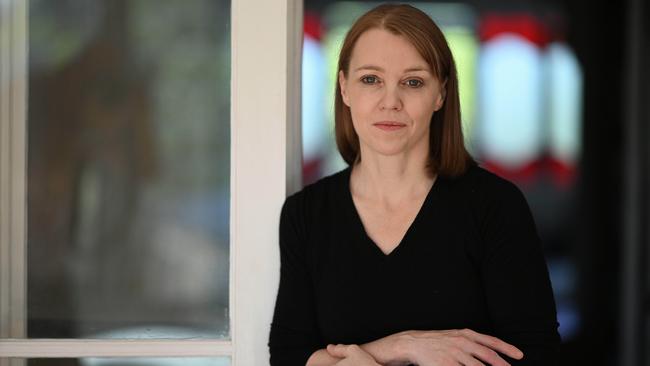UK study finds mental health of one third of kids on puberty blockers deteriorates
Australian psychiatrists call for puberty blockers for adolescents to be restricted, after UK study finds mental health deterioration in one-third of children on the drugs.

Leading Australian psychiatrists say puberty blockers should be restricted to children enrolled in rigorous clinical trials, after a new British analysis found the mental health of one-third of adolescents deteriorated while they were taking the controversial drugs.
The new UK analysis of an earlier, landmark study found 34 per cent of children aged 12 to 15 reported their mental health had deteriorated after taking puberty blockers for one year, while 29 per cent of children saw their psychological health improve. No mental health change was reported by 37 per cent of the children who had been on blockers for 12 months.
Overall, the fresh analysis, published on preprint health sciences website medRXIV, suggests 71 per cent of children taking puberty blockers reported a decline or no change in their mental health after one year of treatment. Yet as the study states: “The main argument for the introduction of puberty blockers in the UK for this age group (under 16) had been their potential to relieve psychological distress’’ while the children explored their gender identity.
Philip Morris, a visiting professor of psychiatry at Bond University, said: “To see a third of people getting worse is very concerning.’’
Given that puberty blockers had other potential side-effects, including infertility and loss of bone density, “we would want to see a result where the majority of people had benefited substantially’’, said Dr Morris, president of the Gold Coast Medical Association.

The British report’s authors, Professor Susan McPherson from the University of Essex and retired social scientist David Freedman, regarded the “comparatively high levels’’ of psychological deterioration among the surveyed children as “concerning’’: “It is important to note that the highest rate of deterioration (34 per cent) is seen in the self-report scale at 12 months (of drug treatment) and only slightly reduces by 24 months to 27 per cent,’’ they wrote.
The reanalysis of the three-year study differs dramatically from the original findings of the Tavistock Gender Identity Development Service and University College London Hospitals, which concluded that puberty blockers caused no changes in the surveyed children’s mental health.
The two analyses reached such different conclusions because the original research reported average group results, while the new study looked at children’s individual mental health trajectories.
The original study led to younger children being prescribed puberty blockers in the UK, according to the BBC. The university and the Tavistock clinic – the latter was criticised by the independent Cass review and will be replaced with UK regional gender clinics from 2024 – have welcomed the new findings.
Psychiatrist Jillian Spencer, who openly advocates for a cautious rather than an affirmation-only treatment model for children with gender dysphoria, said the latest UK findings “beg the question, ‘Why on Earth are puberty blockers still being prescribed?’ ”.
Dr Spencer said despite potential side-effects including infertility and impaired sexual function, in Australia, these drugs “are being prescribed off label for children with gender dysphoria, which means that no drug company has ever had to prove to a regulator that puberty blockers are safe and effective”.
“Australia is not taking any steps to regulate or monitor the prescription of puberty blockers to children and adolescents,” she said. “Puberty blockers have been in use for at least 20 years and there still isn’t any reliable evidence that they improve psychosocial outcomes. However, there is growing evidence of their harms.’’
The senior staff psychiatrist lodged a complaint with Queensland’s Human Rights Commission after she was stood down in April from clinical duties at the Queensland Children’s Hospital, reportedly due to a “transphobia” claim.
Dr Spencer alleges she was prevented from adopting a neutral therapeutic approach and forced to comply with gender-affirming polices she believed may have harmed young people during her employment at the hospital.
Australian children’s hospitals follow gender-affirmative guidelines, which gender-affirming doctors regard as world’s best practice.
Peak body the Australian Professional Association for Trans Health strongly supports the gender affirmation model, including the use of puberty blockers, but did not respond to The Australian’s request to comment on the new UK analysis.
AusPATH said on its website in 2022 there was “increasing evidence that access to reversible puberty blockers, and later gender-affirming hormone treatment if wished, is associated with positive mental health and social wellbeing in adolescents with gender incongruence’’. AusPATH added the evidence showed “adolescents are satisfied with these treatments and perceive them as essential and lifesaving’’. It opposed a UK recommendation to restrict the availability of puberty blockers for children with gender incongruence.
Dr Spencer and Dr Morris said Australia should follow the UK’s plan, announced in June, to restrict puberty blockers to children taking part in clinical trials.
Dr Spencer said: “It is urgent that Australia … fall in line with the UK and restrict the prescription of puberty blockers to high-quality clinical research trials. We need to stop exposing Australian children to these risky, experimental treatments without the safeguards of a clinical research trial.’’
The new UK analysis has limitations: the sample size (44 children) is small, it has not been peer-reviewed and there is no control group, meaning researchers can’t definitively conclude the changes in the children’s mental health were caused by puberty blockers.






To join the conversation, please log in. Don't have an account? Register
Join the conversation, you are commenting as Logout